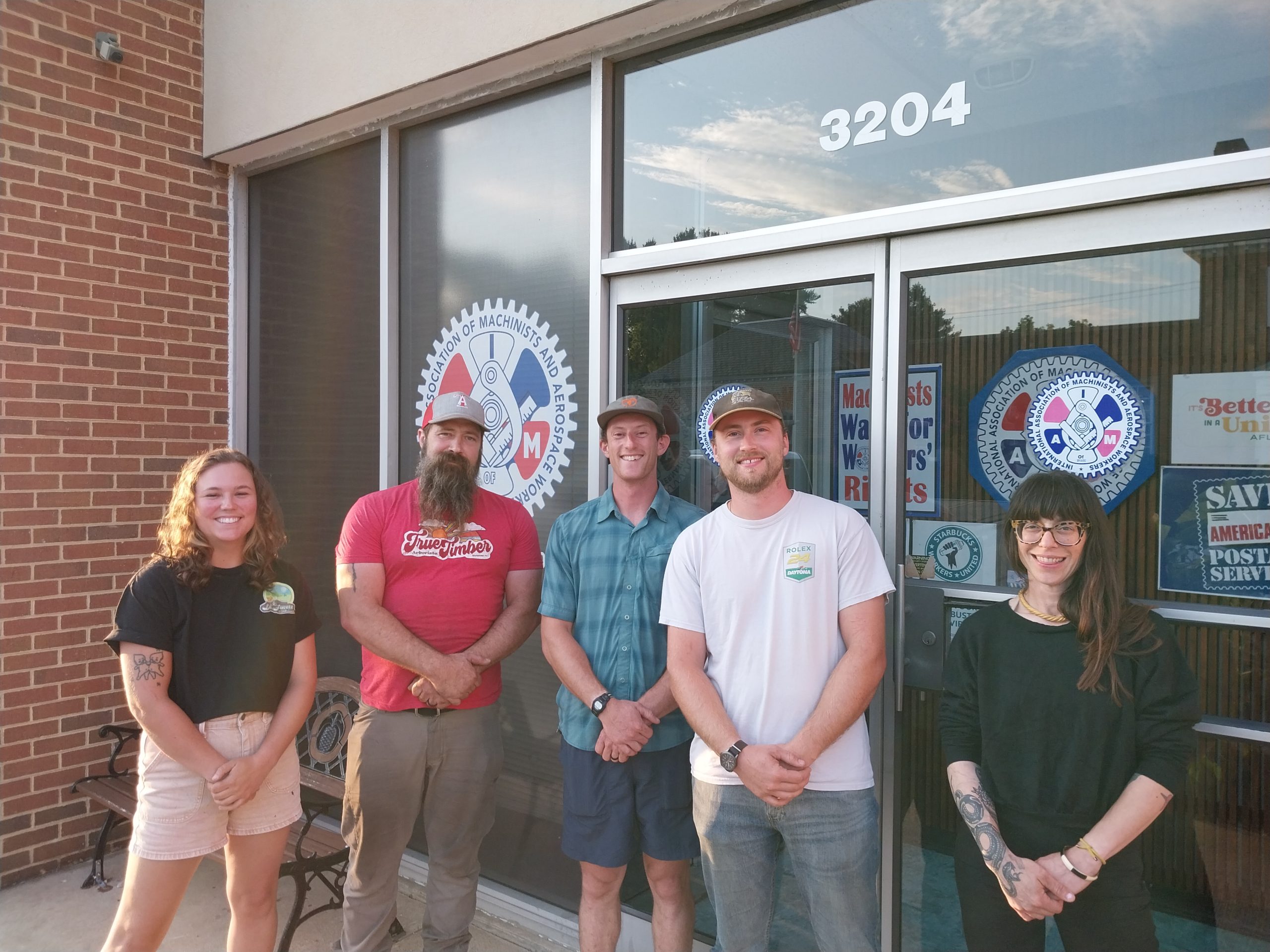

Over 30 arborists working at Truetimber in Richmond, Va., have become the first unionized residential tree care company in the United States after voting to join the IAM.
The company founder’s promise to sell the company to employees was broken when it was sold to a private equity firm. The new ownership canceled the profit-sharing program without notice, prompting the workers to unionize with IAM Local 10 (District 2020). Despite efforts by the new parent company and a union-busting firm hired to prevent it, the union vote passed overwhelmingly.
As anticipated, the new management tried every trick in the book, including hiring the anti-union law firm Foley & Lardner.
Soon enough, anti-union pamphlets started making the rounds, “educating” workers on the stiff bureaucracy and ideological impositions a union would impose on their “way of life” at Truetimber.
After an initial meeting, the workers split up and started dispersing authorization cards, first contacting those they were confident would be “good bets.” It just so happened that a majority of staff were very good bets, and 80% of the prospective bargaining unit signed cards within two weeks.
After the cards were gathered, another meeting at the union hall was held with as much of the bargaining unit as possible to ensure everyone was on the same page about what was about to happen and to prepare the group for Canopy’s upcoming counter-campaign.
“Now that Truetimber has unionized, our new members have two avenues by which they can advocate for themselves and the industry,” said IAM Southern Territory General Vice President Craig Martin. “First, they have a collective voice with which to balance the scales in their immediate place of work, and second, they have a direct pathway of political advocacy through their union, the IAM, to voice their concerns more handily to Virginia lawmakers.”
“As the IAM evolves, IAM Local 10 is embracing the change and is looking forward to empowering our new union siblings at Truetimber,” said IAM Local 10 Business Representative Charles Mann. “I’m encouraged by the strength of our newest union members and how they never backed down during the campaign.”
“Witnessing a group of like-minded coworkers come together in such a spontaneously coordinated way was nothing short of inspiring,” said new member Alex Wilson. “It is a true testament to how much we love our jobs, want to keep loving our jobs, and even improve them if we can.”
“I would advise any workers who are seeking respect and a voice on the job to contact your local union rep and get a conversation started,” said Nathan Salle, also a new member. “In all honesty, it was a stressful time at work, but in the end, it was gratifying and uplifting to see the unity of everyone shown through the percentage of employees who voted for the union. If you are feeling unheard and disrespected at work I would encourage other workers to reach out to one another on a safe platform and start discussing joining a union and reaching out to a union rep to learn more about what the process would look like.”
The American tree care industry is highly unorganized, and there are minimal regulations on who can work on trees, what safety standards they must employ, and what sorts of credentials are needed to start a tree care business.
Though often underappreciated, tree care is a crucial industry for society’s functioning. Poorly managed trees pose significant risks to infrastructure and property without skilled arborists. After severe storms, arborists are considered essential workers alongside power linemen, ensuring safety and stability. At large, however, America is the only Western nation that doesn’t require any kind of certification to be an arborist.